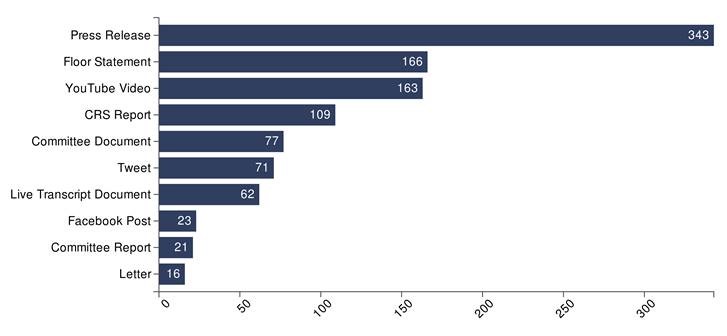Private Equity and Other Carried Interest Funds - Federal Tax Policy Tip Sheet: Issue 1
The Top Line
The U.S. House of Representatives passed the Fiscal Year (FY) 2018 budget on Thursday, Oct. 26, clearing the congressional path for tax reform legislation and providing a procedural victory for President Donald Trump and Republican leadership. The Senate first approved an identical version of the bill on Oct. 19.
This House and Senate "reconciliation" of the FY 2018 is important for two reasons. First, it is drafted such that it allows for a future tax bill to be approved in the Senate with 50 votes rather than the usually required 60, i.e., a reconciliation. Second, it contains a "placeholder" to account for future budgetary impacts from tax cuts. Federal budgets are "concurrent resolutions" that do not require the President's signature. As such, they do not carry the force of law but do instruct Congress on the budgetary path forward.
Finally, discussions with policymakers suggest that tax legislation is taking form and will likely not be revenue-neutral, meaning that revenue generated from the elimination and limiting of tax breaks will not cover revenue lost from other tax cuts.
The Details
- Carried Interest: Gary Cohn, director of the White House's National Economic Council, has noted that President Donald Trump "remains committed to ending" the deduction. Several Republicans on the House Ways and Means Committee and Senate Finance Committee have similarly commented. We do not, at this point, anticipate a full end to the deduction but are hearing that it may be limited.
- Corporate Interest Deductibility: Initial reports suggested a possible elimination of corporate interest deductions to generate additional revenue. However, corporate America has pushed back on this fairly strongly, and it looks now like interest deductibility will be scaled back but not eliminated. This will continue to be a moving target depending upon how big the revenue hole becomes.
The Timing
There is a lot of pressure to complete tax legislation by the end of the calendar year, which seems ambitious in our opinion. Congress likes natural deadlines, such as the holidays, and we believe that getting tax legislation off the House and/or Senate floor can possibly be done by then, but that a conferenced product signed by the President would be an impressive feat.
Holland & Knight's Public Policy & Regulation Group will continue to update on the topics above.
For more detail, reach out to Senior Policy Advisor Tom Reynolds, who is a former Republican member of Congress, elected House leader and senior member of the House Ways and Means Committee, or Senior Public Affairs Advisor Paolo Mastrangelo.
Did You Know?
Since the recession, the term "private equity" has been mentioned in Congress more than 1,000 times? The chart below shows the counts per type of congressional "mention."

Source: Quorum Analytics
View Enlarged Image
Information contained in this alert is for the general education and knowledge of our readers. It is not designed to be, and should not be used as, the sole source of information when analyzing and resolving a legal problem. Moreover, the laws of each jurisdiction are different and are constantly changing. If you have specific questions regarding a particular fact situation, we urge you to consult competent legal counsel.
